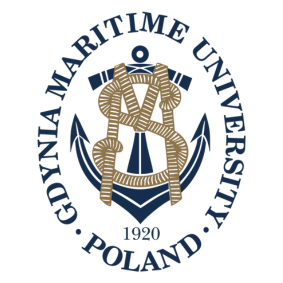About

General information
In 2005, the European Commission adopted the European Charter for Researchers and the Code of Conduct for the Recruitment of Researchers (Human Resources Strategy for Researchers - HRS4R) which outlined the legislation and requirements that researchers and their employers should adhere to. Both documents highlight the need to develop favourable and stable working conditions for academics at every stage of their career.
Research institutes, institutions of higher education, and businesses that incorporate the principles of the Code of Conduct for the Recruitment of Researchers as part of their internal regulations, and as a result create a favourable environment for research work as well as transparent procedures for the recruitment of research personnel, are recognised by the European Commission with the HR Excellence in Research Award.
Recognition of the right to use the icon is part of the European Commission’s Human Resources Strategy for Researchers, aimed at improving the working conditions of scientific research workers in the European Union. The purpose of the initiative is to increase the number of research workers active within European institutions. The EC supports the implementation of the principles of the Charter and the Code of Conduct by organising meetings and discussions that are attended by the institutions involved in the initiative, as well as through the promotion of such institutions among international organisations and researchers.
European Charter for Researchers
The aim of the European Charter for Researchers is to ensure that the nature of the relationship between researchers and employers or funders is conducive to successful performance in generating, transferring, sharing and disseminating knowledge and technological development, and to the career development of researchers.
The Charter also recognises the value of all forms of mobility as a means for enhancing the professional development of researchers. In this sense, the Charter constitutes a framework for researchers, employers and funders, which invites them to act responsibly and as professionals within their working environment, and to recognise each other as such.
The Charter addresses all researchers in the European Union at all stages of their career and covers all fields of research in the public and private sectors, irrespective of the nature of the appointment or employment, the legal status of their employer or the type of organisation or establishment in which the work is carried out.
It takes into account the multiple roles of researchers, who are appointed not only to conduct research and/or to carry out development activities but are also involved in supervision, mentoring, management or administrative tasks.
This Charter takes as its premise that researchers as well as employers and/or funders of researchers have an overriding obligation to ensure that they meet the requirements of the respective national or regional legislation. Where researchers enjoy a status and rights which are, in certain respects, more favourable than those provided for in this Charter, its terms should not be invoked to diminish the status and rights already acquired. Researchers, as well as employers and funders who adhere to this Charter, will also be respecting the fundamental rights and observe the principles recognised by the Charter of Fundamental Rights of the European Union.
More information on the Charter is available at:
https://euraxess.ec.europa.eu/jobs/charter-code-researchers
Code of Conduct for the Recruitment of Researchers
The Code of Conduct for the Recruitment of Researchers consists of a set of general principles and requirements that should be followed by employers and/or funders when appointing or recruiting researchers. These principles and requirements should ensure observance of values such as transparency of the recruitment process and equal treatment of all applicants, in particular with regard to the development of an attractive, open and sustainable European labour market for researchers, and are complementary to those outlined in the European Charter for Researchers. Institutions and employers adhering to the Code of Conduct will openly demonstrate their commitment to act in a responsible and respectable way and to provide fair framework conditions to researchers, with a clear intention to contribute to the advancement of the European Research Area.
More information on the Charter is available at:
https://euraxess.ec.europa.eu/jobs/charter-code-researchers

